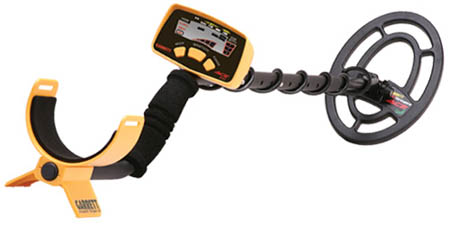Probably the most commonly asked questions I get when you first speak treasure hunting is, “What’s the top metal detector?” Everybody asked that real likely to have his/her own slant about the subject. Every one has their particular experiences, and each has their own “type” of treasure they’re going for. I’m no exception. So, I am going to give my “slant” and find out if some tips i contribute will narrow the selection down a little.
First… and by far the most crucial criteria when selecting a metallic detector is “choose a metal detector that you will use.” I don’t care how fancy or expensive metallic detector is… if all it does is sit in the corner which has a jacket hanging regarding this, it’ll find no more treasure than a child’s toy. I say this, as I have seen people with an arsenal of metal detectors… some basic, plus some fancy… and several times they select the basic detector, because each of the settings, controls, buttons, and what-nots on the fancy detector are merely too complicated on their behalf. They do not have fun with this; they do not realize it, and thus they do not use it. So, in case you are not used to metal detecting, or don’t relish the concept of having to learn what all those buttons, knobs, and screens do and mean, restoration you’re better off using a more “basic” model, at least until you get experience and figure out exactly what you would like and may handle.
Metal detectors do exactly that. They detect metal… all metal. Ferrous metal is iron based and can be fascinated by a magnet (iron, steel, etc.). Non-ferrous metal isn’t iron based and will not be fascinated by a magnet (aluminum, copper, nickel, silver, gold, platinum, etc.).

Ground Balancing – Many detectors offer circuitry to deal with mineralization inside the soil. Mineralization may be caused by salts, iron, “black sands,” “hot rocks” or another “hot” deposits that naturally occur. Should you decide on nugget-shooting (detecting for gold nuggets), choose a machine which is created specifically for nugget-shooting. If you are destined to be beach combing (detecting at the sea), choose a beach machine (not simply may be the circuitry better made to handle the mineralization available at the beach, but most are better developed to withstand the saltier environment). If you’re detecting at various locations, including parks, fairgrounds, and other public places, then the “general purpose” machine can do. Bare in mind, you need a machine by incorporating type of ground balancing capability.
Sensitivity – Most detectors may sensitivity adjustment. The search coil with the detector is essentially an antenna that has an electromagnetic field emanating inside a pattern that is certainly “shaped” with the type of the coil (round or elliptical are the most common). The distance (depth) it reaches is often a factor of power output and frequency. After this field is disturbed by the target (metal), the circuitry senses the disturbance as well as the detector registers with sound and/or visually with a display (meter or graph). The sensitivity adjustment will permit the detector to sense this disturbance by smaller targets (with a given depth) or a given target in a greater depth. The trade-off could be that the greater the sensitivity, the higher the aftereffect of non-target “junk” and mineralization. Setting the sensitivity excessive will cause false hits, or so much electrical chaos that targets are missed, especially weak targets. Too much sensitivity also can create a medium or large size target to “overwhelm” the circuit and cause it to blast an overload signal.
For more information about metal detector just go to this useful web site.

